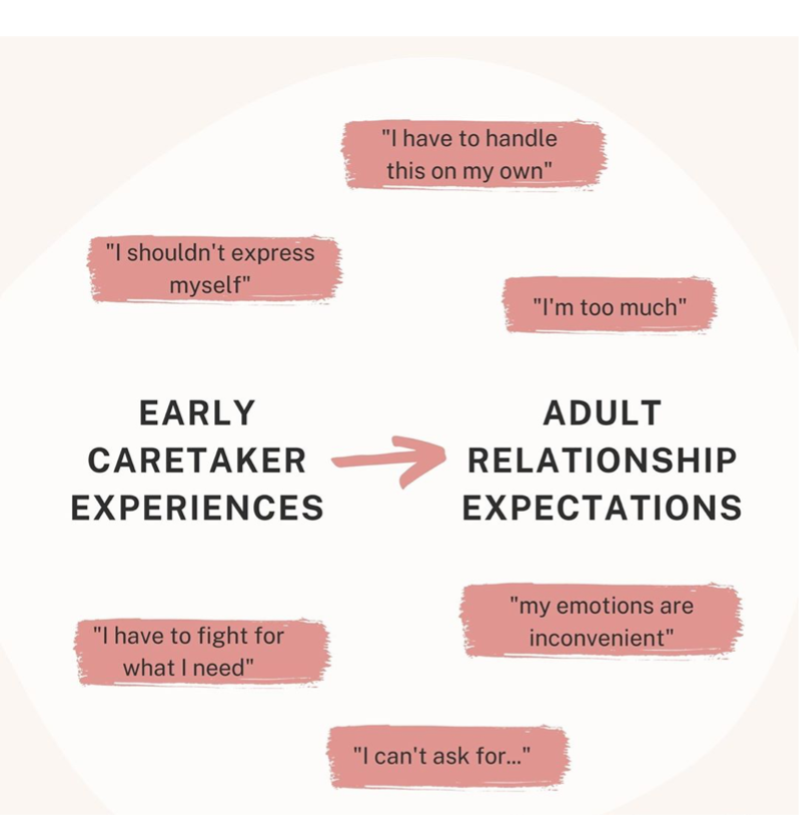
The early experiences we have with our earliest caretakers sculpt our brain. We don’t remember these experiences in the way that you’d expect – like how you remember family vacations or other anecdotes from growing up. Instead, we remember these imprints somatically (in our bodies), and then later in adulthood we do our best to translate these somatic feelings into words.
How Early Experiences Shape the Brain
When there has been misattunement (an experience where our needs are not met by a caretaker) without proper repair, this feeling is stored in our body as well. The younger we are when this misattunement occurs, the more painful and potentially life-threatening it may feel. Later, our brains will use these intense feelings to sculpt our narratives and beliefs about the words. This can lead to relationship issues, lack of trust, difficulty with intimacy and more.
How Inner Dialogue Mirrors Childhood Dialogue
Attachment issues can emerge in adulthood in many ways, including painful beliefs like:
“I shouldn’t express myself”
“I have to handle this on my own”
“I’m too much”
“I have to fight for what I need”
“I can’t ask for…”
We may notice patterns in our adult relationships where there is more mistrust or distance than you want there to be. It may feel difficult to open up to partners even though we (theoretically) want to.
How Therapy Can Help
In our work together, you have space and time to heal the tender attachment wounds that may still be surfacing in your life. We take the time to look at what messages you received that you’d like to keep, and others that you’d like to revise. We can discuss where these patterns are currently showing up and tend to any younger parts of you who are activated by current experiences.
Slowly but surely, you can retrain your thought processes to align with the way that you’d like to treat yourself. Take the first steps in healing your relationships today!
